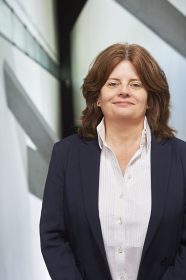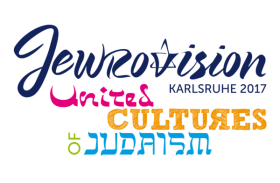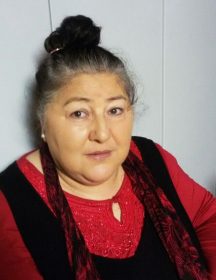New program director of the Jewish Museum Berlin holds lecture for future museum generation
1) Dear Mrs. Meijer-van Mensch: over the last years you have worked for various institutions in different countries. What distinguishes the museum landscape in Germany from other countries in your opinion?

Program director Léontine Meijer-van Mensch puts much value upon the promotion of the future museum generation; Jewish Museum Berlin, photo: Yves Sucksdorff
First I would like to say that in Germany – contrary to the Netherlands – there is a widely supported notion that culture in general (and therefore museums) is important. It is stimulating to be able to work in such an environment. Before World War II German museology was very influential worldwide. After the war Germany lost its leading position and new developments in the international museum world were not always fully embraced. An example is the importance of education and the role of educators within the organization of the museum. → continue reading
 “Jewrovision”, the largest singing and dancing competition for Jewish youth in Europe, will take place this year for the 16th time. Last year an audience of over 2,000 gathered at the Rose Garden Hall in Mannheim, accompanying the brilliant stage show produced by youth centers with frenetic applause. It’s hard to imagine that Jewrovision 2002 was just one of a number of evening programs at a Jewish recreational camp called Machané. Back then, at a recreational center in Bad Sobernheim (not far from Frankfurt), six groups from various cities appeared on a stage just three yards wide. Today, only 15 years later, there are 18 teams presenting their multi-media performances on enormous stages in much larger venues. An extraordinary development. → continue reading
“Jewrovision”, the largest singing and dancing competition for Jewish youth in Europe, will take place this year for the 16th time. Last year an audience of over 2,000 gathered at the Rose Garden Hall in Mannheim, accompanying the brilliant stage show produced by youth centers with frenetic applause. It’s hard to imagine that Jewrovision 2002 was just one of a number of evening programs at a Jewish recreational camp called Machané. Back then, at a recreational center in Bad Sobernheim (not far from Frankfurt), six groups from various cities appeared on a stage just three yards wide. Today, only 15 years later, there are 18 teams presenting their multi-media performances on enormous stages in much larger venues. An extraordinary development. → continue reading
Reading with Anita Awosusi

Anita Awosusi has championed Sinti and Roma civil rights; photo: private
Our series “New German histories” continues this year: on February 9, 2017, (the date was cancelled at short notice!) Anita Awosusi will introduce her book Vater Unser – Eine Sintifamilie erzählt (Our Father – A Sinti Family Recounts) in the W. Michael Blumenthal Academy of the Jewish Museum Berlin. In her book the author weaves together her family’s biography, broader historical events, and the aftermath of Nazi rule. She tells the story of her father and at once of her own evolution. As a civil rights activist she still fights today against discrimination and for equal rights and civic participation for the Sinti and Roma peoples and was active for over twenty years at the documentation and cultural center for German Sinti and Roma. In anticipation of the event we asked Anita Awosusi three questions:
You entitled your book Our Father – A Sinti Family Recounts. Is the play on the central Christian prayer, the “Our Father”, intentional on your part? If so, what did you want to express with this choice?
The title Our Father came about because my sister and I always say “our father” when we talk about our parents. In addition, my father had a very fundamental role in our family as patriarch. Not to suggest at all that our mother was less respected by us children. But there was a second reason: → continue reading


